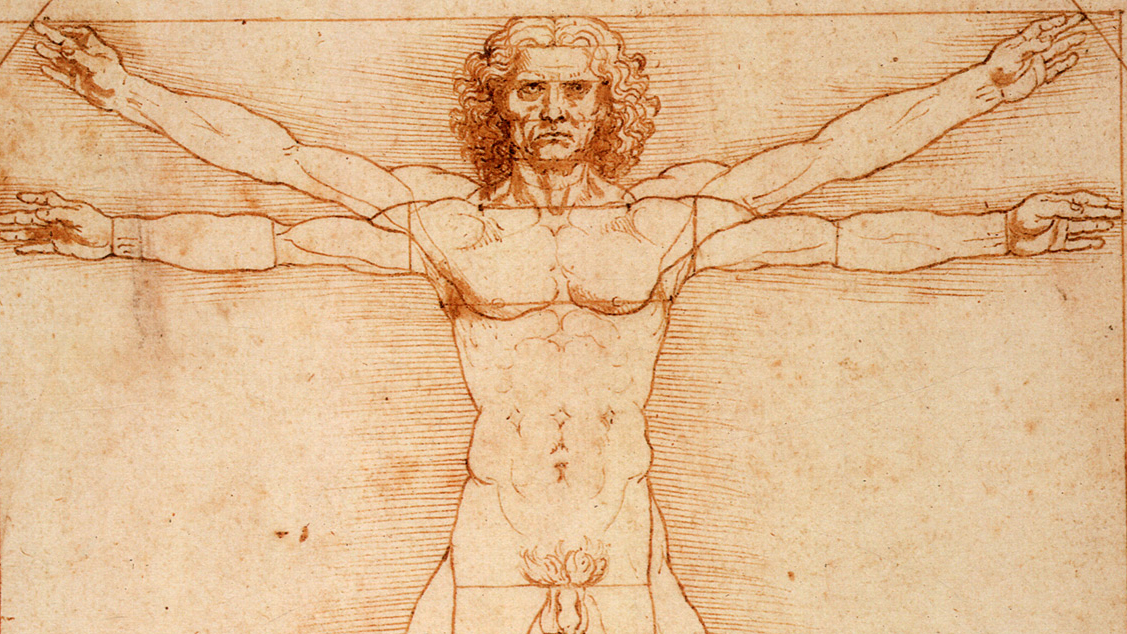
Da Vinci's Vitruvian Man
When Sheila Bonise's parents told her they wanted to donate their bodies to the Anatomical Gifts Program at the Faculty of Medicine & Dentistry at the University of Alberta after their deaths, she was taken aback. Just think about it, her father advised her, just sit and think about it for a minute. "And then I looked at him and said: 'That is the most honourable gift you can give,'" she remembered.
Bonise and her sister were among the hundreds of donor family members in attendance at the anatomical donors commemorative service April 27 at Bernard Snell Hall. The annual event is held to show appreciation to the families, honour the memories of their loved ones and offer an opportunity to say goodbye. "The ceremony was so beautiful and there was so much respect. To know that my parents could be a part of these students' learning is very special," said Bonise, whose mother, Dorothy Joan Watson, passed away in 2004 and father, Dennis Watson, in 2012.
Anatomical gifts are used for teaching courses in human anatomy to students in medicine, dentistry, kinesiology, physical therapy, physical education and other allied health professions. The program has been in operation since 1921, each year receiving between 60 and 80 donations. Currently, about 6,000 people have registered their intent to donate by filling out the program's donor registration form. The University of Alberta gifts program is one of about a dozen similar entities at universities in Canada. However, many of Canada's 17 medical schools use the donated bodies to merely demonstrate partial dissection or offer electives that teach dissection. In fact, most medical students now learn anatomy from a combination of imaging technologies, textbooks and observation. At the U of A, all medical students still perform complete dissections themselves.
It is part of what makes the faculty one of the top medical schools in Canada, noted Douglas Miller, dean of the Faculty of Medicine & Dentistry, in his speech at the ceremony. "Your loved one's gifts enable us to train the finest doctors, dentists and health professionals. Our students fully appreciate these generous donors and their families, who allow future health-care practitioners to develop unique understanding of the human body-its anatomical consistency yet infinite complexity. They understand that without anatomical donors, their education would be incomplete. Today we pay homage in loving memory, and thank these donors for their heart-felt gifts."
Miller also spoke of the profound and transformational experience of a student cautiously touching a body in the anatomy lab for the first time "The delicate process of cadaver dissection and human surgery is not something we can learn solely from textbooks," he emphasized.
Second-year medical student Bryan Frobb echoed the sentiment. It is a privilege to learn anatomy through dissection, he said, just like so many members of his own family. Frobb's brother, uncle and grandfather all graduated from the U of A medical school, and his father graduated from the dentistry program. "Lectures and textbooks can only take you so far," said Frobb. "They can never give you a sense of the intricate, three-dimensional relationships that exist within the body. I don't think I've ever received a gift as important or as generous as the gifts from our first few patients in the anatomy lab. It's amazing to think that someone I've never met would entrust me with such a great responsibility and with something so personal, all in the hope that it will one day make me a better doctor.
"It's hard to imagine a nobler legacy," he said. "The donation of their remains, something from which they could never benefit and can never be repaid, speaks volumes of the character of each donor. It really is inspiring beyond words."
For more information about the Anatomical Gifts Program, please contact Jason Papirny, program co-ordinator, at 780-492-2203 or jpapirny@med.ualberta.ca.